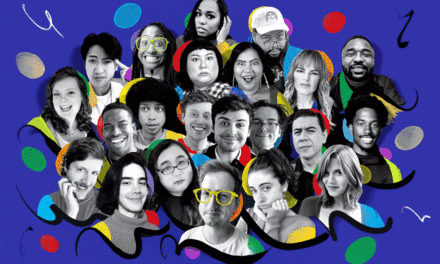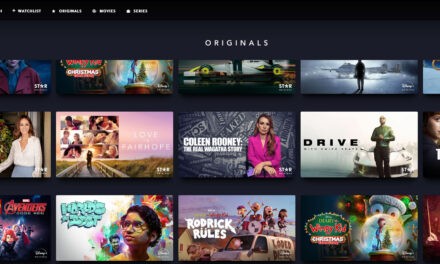A Gothic-Without-Borders Conference in March 2021, fully online,
hosted by the Department of World Languages and Literatures (WLL) at Simon Fraser University (SFU), Vancouver, Canada, coordinated by the SFU Center for Educational Excellence (CEE), and co-sponsored by the International Gothic Association (IGA) and others
Plenary Speakers
Linnie Blake, Manchester Metropolitan University, UK
Mark Deggan, Simon Fraser University, Canada
Andrew Hock Soon Ng, Monash University, Malaysia
Maisha Wester, Indiana University, Bloomington, USA
“In the first place, a blazing star or comet appeared for several months before the plague, as there did the year after another, a little before the fire. The old women …. remarked…that those two comets passed directly over the city, and that so very near the houses that it was plain they imported something peculiar to the city alone; that the comet before the pestilence was of a faint, dull, languid colour, and its motion very heavy, Solemn, and slow…and that, accordingly, one foretold a heavy judgement, slow but severe, terrible and frightful, as was the plague’.
Daniel Defoe, A Journal of the Plague Year 1665 (1722)
The conference organizers herewith call for proposals for papers on how forms of the Gothic deal with the critical issues arising from racism, social injustice, populism, mass infection, and the relation of each of these to contagion in at least one of its many forms – the most pressing issues of our current moment — now and throughout world history.
The Conference Organizing Committee will entertain proposals about Gothic literature, drama, film, television, art-forms and/or cyberspace for a symposium to be conducted entirely online over 2-3 days. The proposals may range from abstracts for individual papers to suggested panels of 3 papers each to possible roundtables of up to 5 speakers. The final papers should be 3600 words (or less), and audio-visual presentations should last no longer than 20 minutes. All completed papers or presentations, once each proposal has been accepted (proposers will hear back by or before December 1), should be sent in electronically by February 15, 2021, well in advance of the conference itself. This process will enable the delegates at online sessions to read or view these presentations in full (or in abstract form) beforehand and then participate in hour-long online discussions after each presenter begins each session with a précis of his/her argument. The official program will list all titles of presentations and the times of every session with the names and institutions of each author. There will be no conference fee for anyone, but all participants are expected to register for the conference and to be paid-up members of the IGA, at least at the partial level [go to http://www.internationalgothic.group.shef.ac.uk/join-the-iga/]. We particularly welcome proposals from postgraduate students, other younger scholars, and specialists in Gothic from all parts of the world, especially those distant from the usual sites of IGA conferences.
Topics may include, but are not limited to:
- Gothic manifestations of any of our themes, treated individually or in connections with each other, insofar as they involve some form of contagion
- Suggestions about these themes and contagion in monstrosities, ghost-figures or settings that develop the Gothic tradition
- Gothic renditions of these problems that touch on colonized peoples or postcolonial life
- Gothic manifestations of contagious cultural conflicts over gender, sexual orientation, or transgender sexuality
- Contagions in Gothic works as interpreted by ecocriticism or disability studies
- The Gothic in relation to theoretical discourses connected with contagion and any of our other themes
- The Gothic as it manifests, or contributes to, the histories and/or politics of contagion, populism, and/or racial injustice or to the cultural and psychological consequences of any one, two, or all of these realities.
Proposals/abstracts for individual papers (proposals no longer than 300 words) should include titles, presenter names, institutional affiliations and e-mail addresses and can result in either typescript documents or audio/visual recordings sent in as e-mail attachments.
Proposals for panels that will take place in one-hour online sessions (with each proposal no longer than 800 words) should include a session title, the name and contact information of the chair and abstracts no longer than 200 words from each presenter, with his/her name and affiliation. Proposals for roundtables (up to 800 words) should include a title; the chair’s name, affiliation, and e-mail address; the names and affiliations of the participants; and a proposed format.
Plenary sessions online may include single speakers or panels of experts invited by the Conference Organizing Committee in consultation with the leadership of this symposium’s co-sponsors. All sessions, if all the participants consent and depending on the available technology, will be recorded and made accessible to all conference attendees online. The precise dates, panels, and plenary arrangements involving our SFU Zoom technology are still being worked on, and we will keep everyone well informed about the links, schedule, and further tech elements as we go forward.
The exact dates of the conference in March 2021 will be determined after all the proposals have been received so as to avoid conflicts with other events that might involve presenters and/or session leaders.
Send all proposals as MS Word attachments, as well as any questions about this conference, to <iga_wll@sfu.ca> by October 31, 2020.
Conference Organizing Committee
Co-Chairs
Jerrold E. Hogle, University of Arizona, USA
John Whatley, Simon Fraser University, Canada
Antonio Alcalá, Tecnologico de Monterrey, Mexico City
Katarzyna Ancuta, Chulalongkorn University, Thailand
Karen Budra, University of Langara, Canada
Mariaconcetta Costantini, Università degli Studi “G. d’Annunzio,” Italy
Charles L. Crow, Bowling Green State University, USA
Carol Margaret Davison, University of Windsor, Canada
Ken Gelder, University of Melbourne, Australia
Monica Germana, University of Westminster, UK
Jason Haslam, Dalhousie University, Canada
Enrique Ajuria Ibarra, Universidad de las Américas Puebla, Mexico
Hsu Li-hsin, National Chengchi University, Taiwan
Karen MacFarlane, Mount St. Vincent University, Nova Scotia, Canada
Gilles Menegaldo, University of Poitiers, France
Agnieszka Soltysik Monnet, University of Lausanne, Switzerland
Aris Mousoutzanis, University of Brighton, UK
Chiho Nagakawa, Nara’s Women University, Japan
Paulina Palmer, University of Warwick, UK
David Punter, University of Bristol, UK
Marie Mulvey-Roberts, University of the West of England, UK
Verita Sriratana, Chulalongkorn University, Thailand
Cynthia Sugars, University of Ottowa, Canada
Nida Tiranasawasdi, Chulalongkorn University, Thailand
Gina Wisker, University of Brighton, UK
Sue Zlosnik, Manchester Metropolitan University, UK





